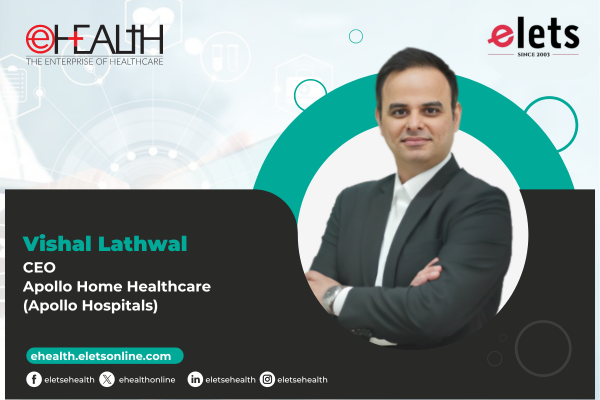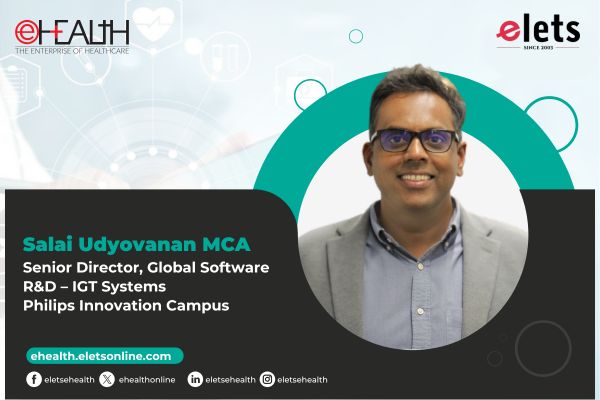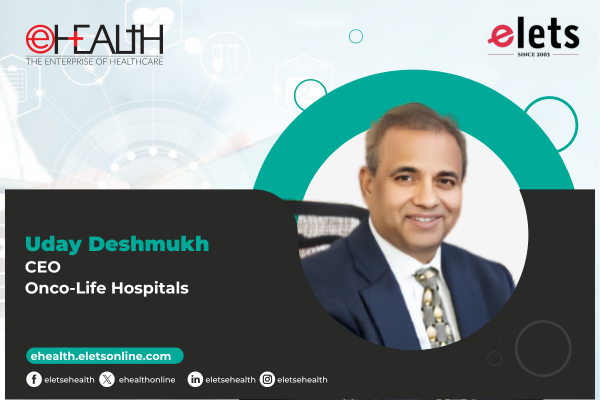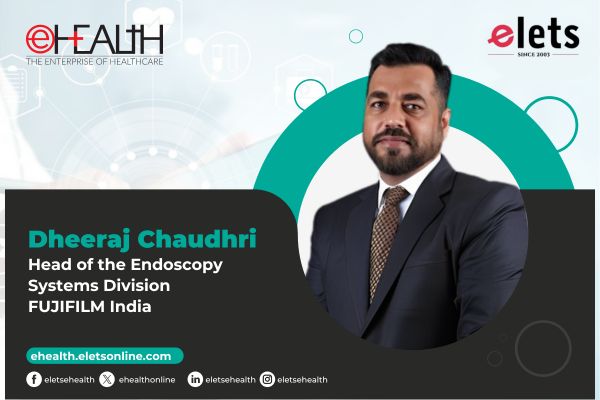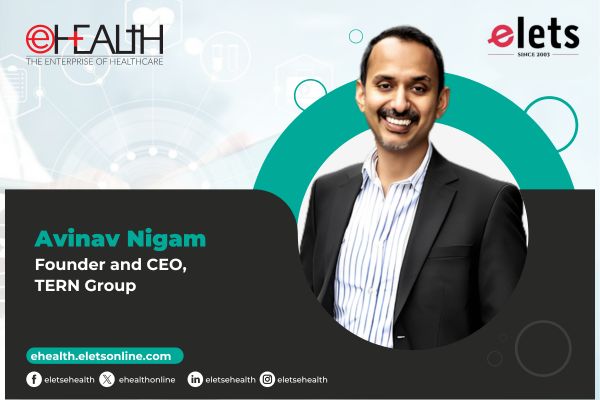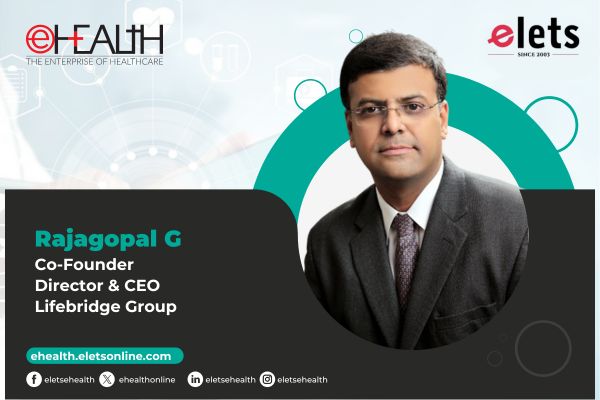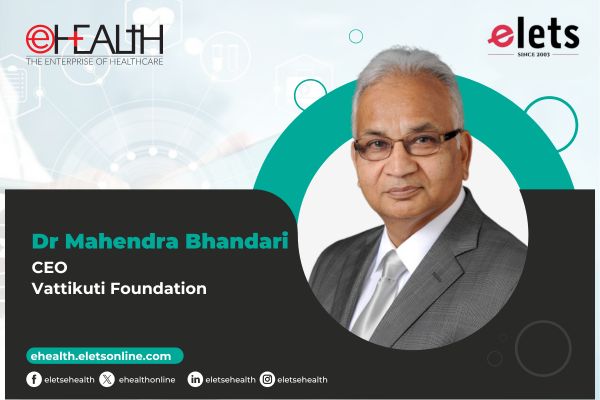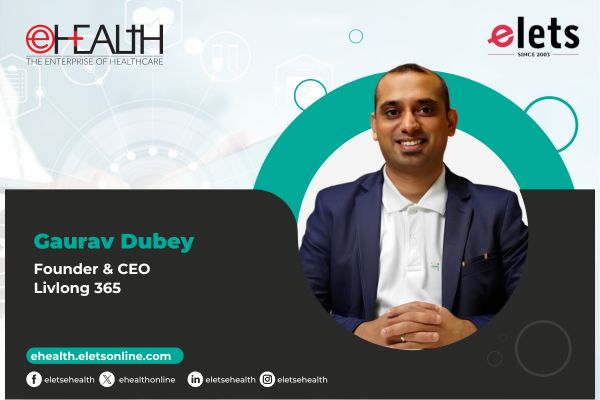
In a country where cancer rates are rising rapidly, especially in underserved rural areas, the need for accessible, affordable, and precise oncology care has never been more urgent. Despite significant advances in treatment technology, disparities in healthcare access remain a major challenge. In this exclusive conversion with Dr. Asawari Savant of Elets News Network (ENN), Vidhi Prasad KV, Managing Director for India & Subcontinent of Accuray, sheds light on the transformative potential of innovative radiotherapy solutions to bridge these gaps, improve patient outcomes, and make quality cancer care available to all.
What are the key challenges in providing affordable oncology care in India, especially in rural areas?

Providing affordable oncology care in India, particularly in rural areas, involves navigating several significant challenges. Access to medical facilities is limited, with many regions lacking hospitals, oncologists, and essential treatment services. High treatment costs and a shortage of clinical resources also pose major barriers to meeting the increasing demand for cancer care. Additionally, low patient awareness about cancer prevention and treatment options often leads to late-stage diagnoses, further complicating the situation.

Accuray is playing a crucial role in bridging the accessibility gap in oncology care. With a 30-year history of innovation in radiotherapy, the organization is committed to delivering unique, market-changing solutions tailored to a spectrum of patient needs. By focusing on enhancing cancer care solutions in tier-2 and tier-3 markets, it addresses the pressing need for a robust cancer care infrastructure across India. Advanced platforms like CyberKnife® and TomoTherapy®/Radixact® set new standards in precision radiotherapy, enabling clinicians to deliver effective treatments efficiently. Accuray recently launched the Helix® system, which enhances access to advanced care, featuring rapid setup times and streamlined workflows that cater to the busy schedules of healthcare providers.

How can technology and innovation address affordability and accessibility issues in oncology care?

Emerging technologies such as Artificial Intelligence (AI) and Machine Learning (ML) are ushering in a new era of oncology care and treatment. These innovations enable oncologists to target tumors precisely while minimizing damage to surrounding healthy tissue. Techniques like Intensity-Modulated Radiation Therapy (IMRT), Image-Guided Radiation Therapy (IGRT), and Stereotactic Body Radiation Therapy (SBRT) significantly improve treatment efficacy and reduce side effects, ultimately enhancing patients’ quality of life. Advances in image-guided radiotherapy have also allowed for smaller treatment volumes and shorter fractionation schedules, leading to better outcomes. Moreover, the adoption of hypofractionation, which involves delivering higher doses of radiation in fewer sessions, has become more common due to advancements in delivery techniques.
However, the need for precise image guidance and patient management can sometimes make workflows complex and resource-intensive. The Accuray Helix™ system further streamlines treatment workflows, enabling healthcare providers to deliver faster and more accurate treatments. With beam-on times as short as two minutes, this system is designed to accommodate the busy schedules of healthcare professionals while addressing a wide range of cancer cases, from common tumors to complex conditions like craniospinal irradiation and total body irradiation. By promising over 96% uptime and being supported by a robust exchange community, the Accuray Helix™ system helps ensure that more patients receive timely and effective care.
How do you envision the role of radiotherapy in enhancing cancer care?
As India faces a rising cancer burden, particularly among urban populations aged 35 and older, there is an urgent need to bridge the access gap, especially in tier-2 and tier-3 markets. Establishing a robust cancer care infrastructure is crucial to addressing this challenge. Accuray is dedicated to bridging this gap by harnessing advanced technologies, including AI and ML, to enhance treatment processes and outcomes.
Accuray envisions radiotherapy as a transformative force in enhancing cancer care, prioritizing precision, accessibility, and patient outcomes. With over 30 years of innovation, the company has pioneered advanced radiation therapy treatment solutions like CyberKnife® and TomoTherapy®, which enable oncologists to deliver targeted treatments that effectively minimize damage to healthy tissues, improving efficacy and reducing side effects. Innovations such as the Accuray Helix™ system streamline workflows, facilitating rapid treatment sessions and accommodating a wide variety of cancer cases.
Collaboration plays a vital role in expanding market access and raising awareness of disparities in cancer care. By partnering with clinical organizations, technology firms, and government agencies, Accuray integrates advanced technologies and shares valuable expertise, creating synergies that significantly enhance patient care. The vision is to ensure that high-quality, personalized radiotherapy is accessible to all patients, regardless of location. Through these initiatives, Accuray aims to solidify the role of radiotherapy in comprehensive cancer care, ultimately leading to better health outcomes and improved quality of life for patients.
What is Accuray’s mission in India?
Accuray’s global mission is to passionately expand the curative power of radiation therapy to improve as many lives as possible. They pursue this mission by delivering better, safer radiation therapy solutions every day, helping patients return to their lives faster. In India, Accuray’s mission is to enhance cancer care by delivering precision radiation therapy technologies and collaborating with healthcare providers to ensure high-quality treatment. The focus is on empowering healthcare professionals to manage increased patient loads without compromising care quality. Accuray is also committed to raising public awareness about cancer and the importance of early detection, as well as providing training for healthcare professionals in rural areas. Recognizing the critical role of collaboration, Accuray prioritizes partnerships with government bodies, the private sector, and non-governmental organizations to improve patient outcomes. The goal is to expand the reach of radiation therapy, making advanced, fast, and precise treatments accessible to as many patients as possible, regardless of their location.
Also Read: FICCI-EY Report Calls for ‘National Cancer Care Policy’ to Address Gaps in Access and Affordability
How can we expand market access and improve accessibility to oncology care solutions in India?
In the context of India’s rapidly growing population, addressing disparities in oncology care is essential. With nearly 70% of people living in rural areas and half of the country’s oncologists concentrated in just 12 major cities, access to cancer treatment poses a significant challenge. The incidence of cancer is expected to be disproportionately higher in low- and middle-income countries (LMICs), highlighting the need for equitable health solutions. Expanding access to advanced radiotherapy technologies could potentially save up to 1 million lives annually by significantly reducing preventable cancer deaths.
While advancements in treatment exist, barriers such as resource limitations hinder their widespread adoption. However, these challenges also present opportunities for innovation, with techniques like hypofractionation allowing fewer treatment sessions while maintaining efficacy. Implementing remote treatment planning can enhance access to quality care in under-resourced clinics, creating networks that improve clinical efficiency and accessibility. Education and awareness are crucial to overcoming misconceptions that hinder the adoption of advanced treatment systems, necessitating training and resources for local healthcare providers.
Ultimately, a collaborative approach among government agencies, non-profits, and healthcare providers is essential for fostering an inclusive healthcare landscape that prioritizes equity. Such an approach enables all segments of the population to benefit from advancements in oncology care, improving outcomes and helping to reduce the cancer burden across India.
Be a part of history! Express your interest and get featured in our exclusive souvenir, launching at the Bengaluru Tech Summit.
Be a part of Elets Collaborative Initiatives. Join Us for Upcoming Events and explore business opportunities. Like us on Facebook , connect with us on LinkedIn and follow us on Twitter , Instagram.
"Exciting news! Elets technomedia is now on WhatsApp Channels Subscribe today by clicking the link and stay updated with the latest insights!" Click here!






